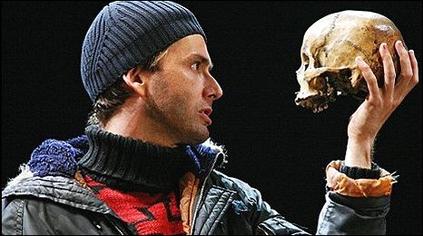 I recently finished an online course by Futurelearn.com about Shakespeare’s play, Hamlet. I wanted to share some reflections on what I learned and what I found most interesting about the course.
I recently finished an online course by Futurelearn.com about Shakespeare’s play, Hamlet. I wanted to share some reflections on what I learned and what I found most interesting about the course.
Although I had read Hamlet a few times prior to this course, I confess that I never really “got” the point. I didn’t see why Hamlet was so upset about his father’s death, and the whole thing just didn’t make sense. But this course helped me understand what it is all about. Hamlet isn’t just about a prince avenging his father’s murder…it is about a young man grappling with the fundamental questions of our existence. There are many interpretations of Hamlet’s behavior throughout the play. Was the ghost real, or did Hamlet conjure it out of his own imagination? Was his madness real or contrived? Was his mother an ally to Hamlet’s uncle or a victim of his evil schemes? The play is all about appearances and our inability to determine reality from what we see. What’s real and what’s false? That’s the core issue of the story. Hamlet seems to be driven mad by this question, although we are forced to ask if his insanity is real, since we can’t believe anything before us.
Through the course of this play, Hamlet loses everything that identifies his place in the world. He becomes no one. His identity is stripped down to his existence as human being. And through this loss of personal belonging, he becomes a figure to which we can all relate. His experience becomes the universal experience of humanity. His uncle’s ascendency to the throne makes him lose his place as future king. He is strongly encouraged by his uncle to stay in Denmark, rather than returning to his studies in Germany. His relationship with Ophelia disintegrates. He isn’t a ruler, a student, or even a man, in the sense of being defined by his love for a woman. He has nothing.
Who hasn’t suffered the loss of a loved one? Who hasn’t been forced to question the preconceived notions of reality? We think we know what’s going on, but then we’re confronted with the truth that reality isn’t anything like we thought. And who hasn’t, at one point or another, been forced to question the meaning for our existence? And just as Hamlet’s grief was underappreciated by even those closest to him, don’t we all know what it feels like to experience something that no one else seems to understand? We all know the alienation caused by suffering and we’ve all watched our world crumble before our eyes.
While there are a lot of theories about Hamlet’s madness, as I’ve alluded to, I tend to think that at first his insanity was pretended, but that he did eventually go mad. I don’t have anything scholarly to back this up, and I haven’t done that much research, so I am no authority on the subject, but it is my humble opinion. It seems like Hamlet decided to distract the king from his revengeful plot by pretending to go mad, but he couldn’t keep the up the pretense without the madness affecting him. By living like a madman, he lost the ability to distinguish between pretense and reality.
With Hamlet’s madness came a loss of any foundational truth to ground him. In his famous soliloquy, he wonders if all the sorrows and trials of life are worth it. Why keep existing? And his answer is: better to face the darkness that we know than the unknown that lays beyond the grace. Our fear of the unknown forces us to embrace this world
And makes us rather bear those ills we have
Than fly to others that we know not of?
This is Hamlet’s only justification for life. When his uncle sets him up for a duel, Hamlet admits that he has a premonition it will not end well for him. His friend, Horatio, asks him why he won’t heed this feeling and find a way to avoid the duel. But Hamlet responds with indifference to life.
Not a whit, we defy augury: there’s a special
providence in the fall of a sparrow. If it be now,
’tis not to come; if it be not to come, it will be
now; if it be not now, yet it will come: the
readiness is all: since no man has aught of what he
leaves, what is’t to leave betimes?
In other words, he’s saying that death will come now or later, at long as you’re ready, that’s all that matters. His fear of the unknown keeps him from committing suicide, but it isn’t enough to keep him from facing the prospect of death at his uncle’s hand. He has nothing left to keep him in this world. He is ready for death.
Hamlet’s story is certainly a tragedy. In a world without God, there’s a poignant absence of justice, or hope. Hamlet comes to see the futility of life, and there’s nothing but death to save him.
I’ll close with my favorite lines from the play.
O God, I could be bounded in a nutshell and count myself a king of infinite space, were it not that I have bad dreams.



